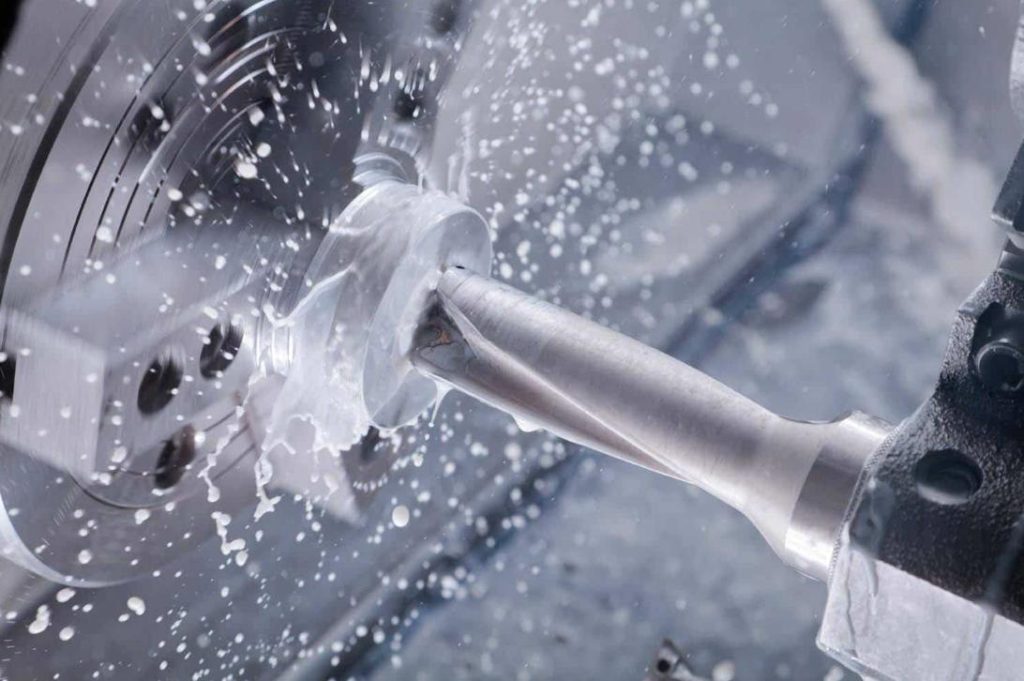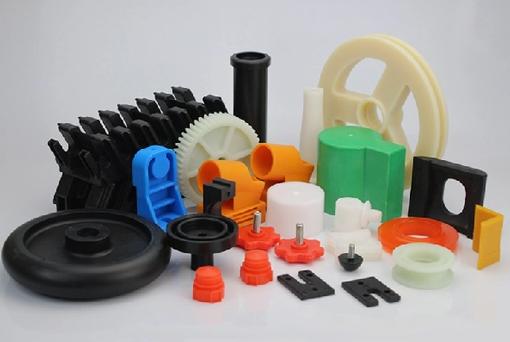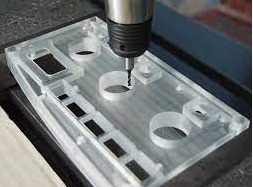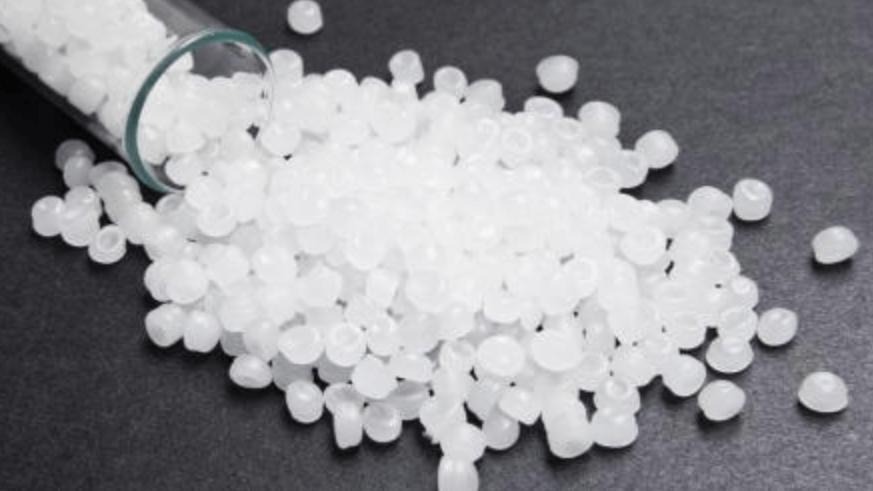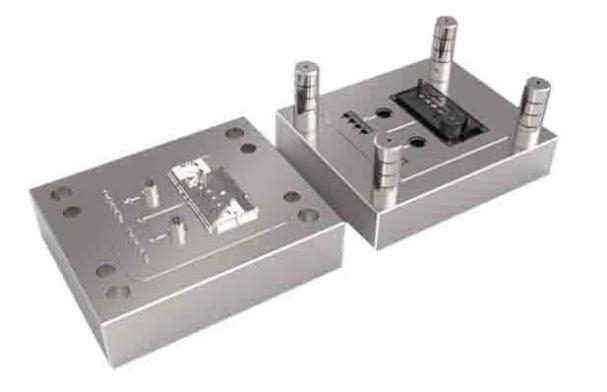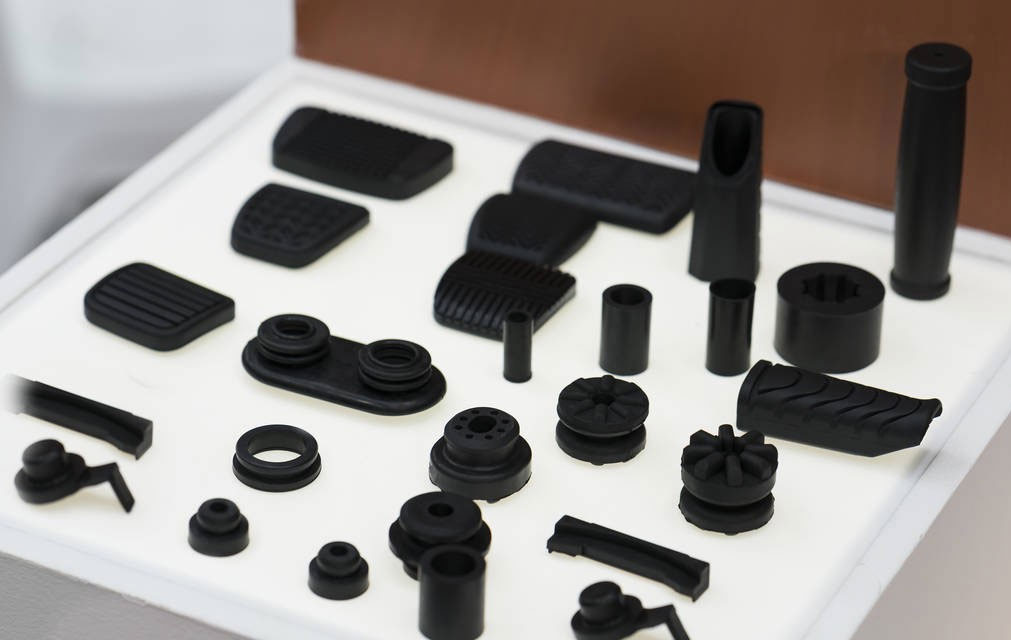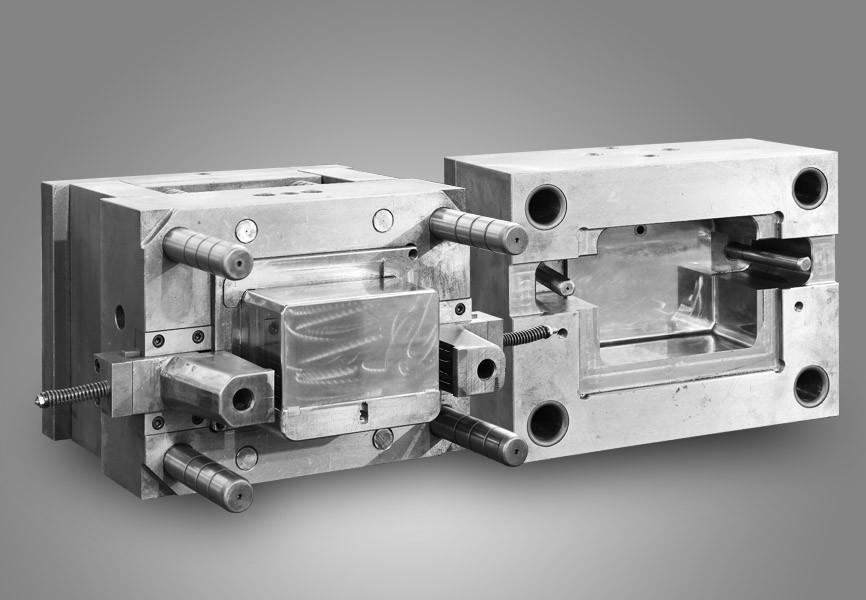Polycarbonate, a versatile engineering thermoplastic, has revolutionized numerous industries due to its exceptional properties. Its combination of high impact strength, heat resistance, and optical clarity makes it an ideal material for a wide range of applications. When paired with the precision and efficiency of CNC machining, polycarbonate can be transformed into intricate and high-performance components. This article delves into the world of polycarbonate, exploring its properties, common types, advantages of CNC machining, and its diverse applications across various industries.

What Is Polycarbonate?
Polycarbonate (PC) is an amorphous thermoplastic that softens before melting, meaning it doesn’t have a specific melting point. It’s primarily available in black and clear rods and sheets. Moreover, polycarbonate is a versatile and durable alternative to standard glass when components with excellent light transmittance are required. This is due to its amorphous nature, exceptional clarity, low weight, and relatively low crystallinity. Unlike other plastics such as acrylic, polycarbonate is heat-resistant and impact-resistant.
Properties of Polycarbonate
Polycarbonate (PC) is a versatile engineering plastic renowned for its exceptional material properties. Although polycarbonate comes in various grades, the following are some of its common mechanical properties:
- High Impact Strength and Toughness: Polycarbonate is known for its excellent toughness and impact resistance, making it a popular choice for high-performance applications.
- UV Resistance: Certain grades of polycarbonate offer superior UV resistance as they are specially engineered to withstand 100% sunlight exposure.
- High Heat and Fire Resistance: Polycarbonate can withstand temperatures up to 140°C, making it ideal for medical applications requiring repeated sterilization.
- Chemical Resistance: Polycarbonate exhibits high resistance to alcohols, oils, inorganic acids, and aliphatic hydrocarbons.
- Excellent Dimensional Stability: This engineering thermoplastic has a low shrinkage rate, ranging from 0.6 to 0.9%, and retains its dimensions under most conditions.
- Translucency and Optical Clarity: The amorphous structure of polycarbonate thermoplastic provides excellent transparency and optical clarity. Additionally, it can achieve a precise 90% light transmission, with a refractive index of 1.548, making it a widely used glass substitute.

Common Types of Polycarbonate
Polycarbonate plastics come in various grades, each with a unique combination of mechanical properties, making them suitable for specific applications across industries. Following are the typical polycarbonate grades used in CNC machining:
- General-Purpose Polycarbonate: This grade of polycarbonate offers exceptionally high toughness and glass-like transparency. General-purpose polycarbonate is well-suited for aesthetic purposes due to its excellent polished finish. Additionally, its superior UV resistance makes it a suitable material for outdoor applications.
- Glass-Filled Polycarbonate: Glass-filled polycarbonate is a robust polycarbonate offering high impact strength and toughness, making it a perfect substitute for engineering plastics and metals. With 10-40% glass fiber content that enhances the strength of standard polycarbonate, it is an ideal replacement for metals in manufacturing industrial-grade components.
- Engineering-Grade Polycarbonate: This polycarbonate grade exhibits excellent dimensional stability, superior electrical properties, high modulus of elasticity, and impact resistance. Components made from engineering-grade polycarbonate are commonly used in applications requiring high-volume manufacturing.
- AMGARD™ Polycarbonate: AMGARD™ polycarbonate is an exceptional engineering plastic with silver ions incorporated into the material to prevent microbial growth on the surface. This polycarbonate is well-suited for manufacturing medical devices and equipment, safety shields, and similar applications that require a bacteria-free or mold-free surface.
- TUFFAK Polycarbonate: TUFFAK is a versatile variant of polycarbonate plastic that is twice as strong as glass. It is compatible with various manufacturing techniques such as CNC machining and thermoforming. TUFFAK polycarbonate offers impressive high dimensional stability and compatibility with adhesives, paints, and solvents.

What Are the Advantages of CNC Machining Polycarbonate Parts?
CNC machining of polycarbonate parts offers a multitude of advantages due to the unique properties of this engineering plastic and the precision of CNC technology. Here are some of the key benefits:
- Versatility: Polycarbonate is a highly versatile material that can be machined into a wide range of shapes and sizes. CNC machining allows for intricate designs and complex geometries to be created with precision and repeatability.
- Dimensional Accuracy: CNC machines can produce parts with extremely tight tolerances, ensuring that components fit together perfectly and function as intended. This is especially important for applications where precision is critical.
- Smooth Surface Finish: Polycarbonate can be machined to achieve a smooth, polished surface finish, enhancing the aesthetic appeal of the finished part and improving its performance in applications where friction or wear is a concern.
- Complex Features: CNC machining can create complex features such as undercuts, blind holes, and threads with ease. This allows for the production of highly customized parts that would be difficult or impossible to produce using other manufacturing methods.
- Rapid Prototyping: CNC machining is an efficient process for creating prototypes and small production runs. This allows for rapid iteration and design refinement, accelerating product development.
- Material Properties: Polycarbonate offers a unique combination of properties, including high impact strength, toughness, and chemical resistance. These properties make it an ideal choice for applications where durability and reliability are essential.
- Cost-Effective: While CNC machining may have higher upfront costs compared to some other manufacturing methods, it can be cost-effective for producing small to medium-sized batches of complex parts. Additionally, the ability to produce parts on-demand can reduce inventory costs.
- Customizable: CNC machining allows for complete customization of parts, enabling manufacturers to create components that meet specific requirements and specifications.

Applications of CNC Machined Polycarbonate Parts
Polycarbonate, when precision-crafted through CNC machining, finds extensive applications across various industries. Here are some key areas where CNC machined polycarbonate parts shine:
Automotive Industry
- Lighting Components: The exceptional optical clarity and impact resistance of polycarbonate make it ideal for headlights, taillights, and turn signals. CNC machining allows for intricate designs, ensuring optimal light distribution and aesthetics.
- Interior Components: Polycarbonate’s durability and lightweight nature make it suitable for interior components like instrument panels, door panels, and center consoles. CNC machining enables the creation of complex shapes and precise fitment.
- Engine Components: Polycarbonate’s heat resistance and dimensional stability make it suitable for engine covers, air ducts, and other components exposed to high temperatures. CNC machining ensures precise tolerances and optimal airflow.
Medical Industry
- Surgical Instruments: Polycarbonate’s biocompatibility and ease of sterilization make it ideal for surgical instruments like scalpels, forceps, and retractors. CNC machining allows for the creation of precise cutting edges and ergonomic handles.
- Medical Implants: Polycarbonate’s strength, biocompatibility, and transparency make it suitable for medical implants like orthopedic devices, dental implants, and ocular implants. CNC machining enables the creation of complex shapes and precise fitment.
- Protective Equipment: Polycarbonate’s impact resistance and clarity make it ideal for protective eyewear, face shields, and other personal protective equipment. CNC machining allows for the creation of custom-fit and highly durable protective gear.
Electronics Industry
- Enclosures and Housings: Polycarbonate’s dimensional stability, electrical insulation properties, and impact resistance make it suitable for enclosures and housings for electronic devices like computers, smartphones, and medical devices. CNC machining allows for the creation of complex shapes and precise cutouts for various components.
- Internal Components: Polycarbonate’s lightweight nature and machinability make it suitable for internal components like gears, pulleys, and brackets. CNC machining ensures precise tolerances and optimal performance.
Aerospace Industry
- Canopies and Windows: Polycarbonate’s impact resistance, transparency, and lightweight nature make it ideal for aircraft canopies and windows. CNC machining allows for the creation of complex shapes and precise fitment.
- Structural Components: Polycarbonate’s strength and stiffness make it suitable for structural components like fairings, ducts, and brackets. CNC machining ensures precise tolerances and optimal performance.
Cnsumer Products
- Sporting Goods: Polycarbonate’s impact resistance and durability make it suitable for sporting goods like helmets, protective pads, and eyewear. CNC machining allows for the creation of custom-fit and high-performance equipment.
- Toys: Polycarbonate’s bright colors, impact resistance, and ease of cleaning make it suitable for toys like building blocks, action figures, and playsets. CNC machining allows for the creation of intricate designs and precise details.
- Household Appliances: Polycarbonate’s heat resistance, chemical resistance, and impact resistance make it suitable for household appliances like coffee makers, blenders, and food processors. CNC machining allows for the creation of precise components and intricate designs.

Polycarbonate and CNC Machining for Exceptional Results
Polycarbonate, when expertly crafted through CNC machining, offers a multitude of benefits. Its unique properties, combined with the precision and flexibility of CNC technology, enable the creation of complex and durable components. CNC machining service supplier JTR will give you satisfactory results.


